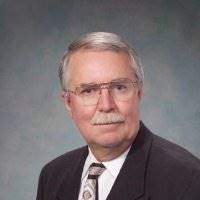 In 1997, Michael Boyle, the CEO of Fayette Companies, the primary behavioral health provider in Peoria, Illinois had a visionary idea: redesign addiction treatment based on models of chronic disease management that are emerging within primary health care. In collaboration with Russ Hagen, the CEO of Chestnut Health Systems in Bloomington, Illinois, Mike procured funding in 1998 from the Illinois Legislature to create a think tank to pilot innovations within such an approach. The result was the Behavioral Health Recovery Management project.
In 1997, Michael Boyle, the CEO of Fayette Companies, the primary behavioral health provider in Peoria, Illinois had a visionary idea: redesign addiction treatment based on models of chronic disease management that are emerging within primary health care. In collaboration with Russ Hagen, the CEO of Chestnut Health Systems in Bloomington, Illinois, Mike procured funding in 1998 from the Illinois Legislature to create a think tank to pilot innovations within such an approach. The result was the Behavioral Health Recovery Management project.
For the following eight years, I had the privilege of working with Mike on this project, conceptually developing frameworks that were nationally promoted under the rubrics of recovery management and recovery-oriented systems of care (RM & ROSC). It was a most interesting collaboration--me with my fascination with the details of the history of addiction treatment, and Mike with his visionary thinking about the future of treatment. Where I mined the lessons of the past, Mike was forever thinking about new possibilities for the future. Between us, we developed an admittedly grandiose vision of changing how addiction treatment was conceptualized and practiced in the United States. Working with Mike on that project exerted an enormous influence on my professional life, as it did on the field we had worked within for most of our lives.
Mike's work was widely recognized in the U.S. by other advocates of RM & ROSC, and he exerted an international influence through his advocacy of RM & ROSC in various UN-sponsored projects. In recent years, Mike retired from Fayette Companies and relocated to Florida with his wife, Laura. During this time, he remained involved in further development of RM and ROSC models through his work as a research associate at the University of Wisconsin-Madison. His most recent interests included the potential of new recovery support technologies (e.g., smart phones) to enhance long-term recovery outcomes.
The role of CEO within behavioral health organizations has taken on an increasingly business orientation as these organizations evolved from small service programs in the 1960s and 1970s to what have often become multi-million dollar corporations. What most intrigued me about Mike was that in his CEO role, he never lost his focus on the client and the quality of frontline service practices. I don't know any CEO in the country who maintained such an intense focus on clinical philosophy, frontline service practices, and long-term recovery outcomes. Mike was a very successful CEO by contemporary business standards, but he was also successful as an innovative clinical thinker and a champion of evidence-based treatment practices.
Mike and I worked on several papers together over the years of our collaboration. Here are links to two of his favorites:
?White, W., Boyle, M., & Loveland, D. (2003). Addiction as chronic disease: From rhetoric to clinical application. Alcoholism Treatment Quarterly, 3/4, 107-130.
?White, W., Scott, C., Dennis, M., & Boyle, M. (2005) It's time to stop kicking people out of addiction treatment. Counselor, 6(2), 12-25.?
My 2007 interview with Mike Boyle is posted at http://www.glattc.org/Interview%20With%20Michael%20Boyle.pdf
Michael Boyle died suddenly on May 7, 2015 at the age of 68. He left a deep imprint on the field and on the lives of those of us who were blessed to have worked with him and counted him as a valued colleague and friend.
Thanks Mike. We live in a better world because of the work you did on behalf of its citizens.